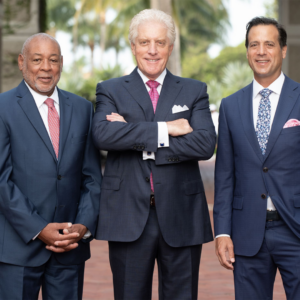Cycling is a great way to get around Washington, D.C. It’s eco-friendly, a great way to stay healthy, and often faster than driving in traffic. But with the benefits of biking comes the responsibility of staying safe and knowing the DC bicycle helmet laws. A helmet is one of the most important ways bike riders can be protected while cycling.
While biking is great for the city, it also comes with risks, particularly when bicycle riders share the road with cars, trucks, and buses. With at least 35 miles of protected bike lanes, the District of Columbia is one of the best cities for cyclists. However, not surprisingly, accidents still happen. From collisions with motor vehicle drivers to falls caused by poor road conditions, DC bicyclists face daily hazards. That’s why understanding safety measures, traffic laws, and local ordinances around bike safety, like wearing helmets, is important for every rider in the district. If you’ve been seriously injured in a bike accident, call the bike crash lawyers at Regan Zambri Long.
Contact Us Today to Schedule
a Free Consultation

In Washington, DC, the bike helmet law requires cyclists under 16 years of age to wear protective helmets while riding. This bicycle law applies to anyone under 16, whether riding on the street, a bike path, or even a sidewalk.
Although wearing a helmet is not legally required for cyclists over the age of 16, it’s strongly encouraged as a preventive measure. Helmets can significantly reduce the risk of serious head injuries if an accident occurs, making them a smart choice for all riders, regardless of age.
While not wearing a helmet as an adult won’t get you a ticket, helmet use can influence the outcome of personal injury claims following a bike accident.

CPSC-approved helmets are designed to absorb impact and reduce the force on the rider’s skull during a crash. These helmets are tested very carefully to make sure they give enough protection. This includes checking how they deal with being hit, if they can resist sharp objects, and how strong the straps are if there’s a crash.
It’s recommended to always look for the CPSC certification sticker when buying a protective bicycle helmet. Other certifications, like those from ASTM (American Society for Testing and Materials) or Snell, can provide additional assurance that your helmet will protect you in an bike accident.
Although the focus here is on bicycle helmet laws, it’s worth mentioning the importance of wearing a helmet while riding a motorcycle. Motorcyclists face significantly higher risks due to the speed and size of vehicles on the road. Washington, DC, requires all motorcyclists, regardless of age, to wear a helmet.
Motorcycle helmets have a more rigid design compared to bicycle helmets, providing increased protection for motorcyclists facing higher speeds and greater risk factors. If you’re riding a motorbike or thinking about switching from a bicycle to a motorcycle, always wear a certified motorcycle helmet.
In Washington, DC, the law doesn’t say adults must wear helmets while cycling. However, if you’re injured in a bike crash and decide to file a personal injury claim, whether or not you were wearing a helmet can come into play.
If you weren’t wearing a helmet during an accident, the other side could argue that your injuries were more severe because you didn’t take proper precautions. This argument might lower the amount of financial compensation you receive. While a lack of bicycle helmet usage doesn’t automatically mean you’re at fault, it’s something to keep in mind.
As stated before, DC bike laws require helmet use for children under 16. If a minor is injured while not wearing a helmet, their case could be complicated. However, the courts usually consider the child’s safety and well-being the top priority, meaning the focus will often be on the other party’s negligence rather than the child’s actions.
Parents or guardians may also have legal responsibilities to ensure their children wear helmets. If a child was injured and not wearing a helmet, a case could involve discussions about parental supervision and responsibilities. However, the main focus would remain on how the accident occurred.

For example, if you were riding without a helmet and the defense argues this contributed to the severity of your injuries, it could be used against you in court. Although not wearing a helmet doesn’t automatically mean you were at fault for the accident, the opposing side may try to connect your lack of helmet use with your injuries to weaken your claim.
Wearing a helmet can significantly impact your DC bicycle accident case. While Washington, DC law doesn’t require adults to wear helmets, doing so can strengthen your position in a personal injury claim.
Here’s how wearing a helmet can help your case:
However, as mentioned earlier not wearing a helmet doesn’t automatically disqualify your claim. Your attorney can still focus on the other party’s negligence and other factors contributing to the accident.
At Regan Zambri Long, we understand DC bicycle laws and how helmet use affects accident claims. We’ll work to build the strongest case possible, regardless of whether you were wearing a helmet at the time of the accident. Contact us for a free consultation to discuss the specifics of your case.
Our experienced bicycle accident lawyers at Regan Zambri Long can help guide you through the process and fight for the fair compensation you deserve. Whether you were wearing a bicycle safety helmet or not, the focus will be on the other party’s negligence and how it contributed to your bike accident injuries. With our record of success, we understand Washington, DC’s contributory negligence laws, and our legal representation can help you build a strong case.
If you’ve been hurt in a bicycle accident, contact Regan Zambri Long for a free consultation. We’ll work with you every step of the way to ensure your rights are protected and you get the best outcome possible in your bike accident claim.
Your safety matters, and we are here to help you move forward after an accident with confidence and peace of mind.